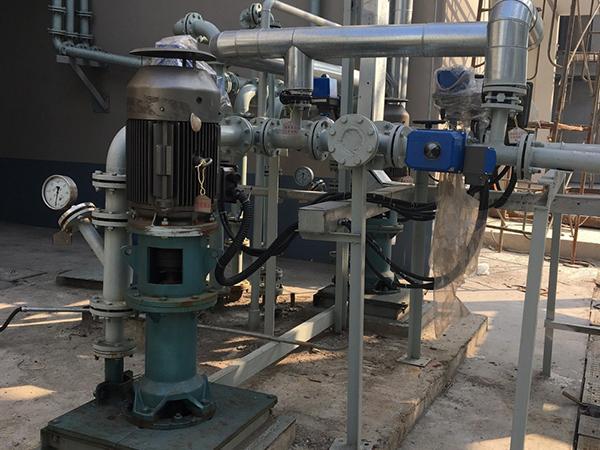English
- Afrikaans
- Albanian
- Amharic
- Arabic
- Armenian
- Azerbaijani
- Basque
- Belarusian
- Bengali
- Bosnian
- Bulgarian
- Catalan
- Cebuano
- Corsican
- Croatian
- Czech
- Danish
- Dutch
- English
- Esperanto
- Estonian
- Finnish
- French
- Frisian
- Galician
- Georgian
- German
- Greek
- Gujarati
- Haitian Creole
- hausa
- hawaiian
- Hebrew
- Hindi
- Miao
- Hungarian
- Icelandic
- igbo
- Indonesian
- irish
- Italian
- Japanese
- Javanese
- Kannada
- kazakh
- Khmer
- Rwandese
- Korean
- Kurdish
- Kyrgyz
- Lao
- Latin
- Latvian
- Lithuanian
- Luxembourgish
- Macedonian
- Malgashi
- Malay
- Malayalam
- Maltese
- Maori
- Marathi
- Mongolian
- Myanmar
- Nepali
- Norwegian
- Norwegian
- Occitan
- Pashto
- Persian
- Polish
- Portuguese
- Punjabi
- Romanian
- Russian
- Samoan
- Scottish Gaelic
- Serbian
- Sesotho
- Shona
- Sindhi
- Sinhala
- Slovak
- Slovenian
- Somali
- Spanish
- Sundanese
- Swahili
- Swedish
- Tagalog
- Tajik
- Tamil
- Tatar
- Telugu
- Thai
- Turkish
- Turkmen
- Ukrainian
- Urdu
- Uighur
- Uzbek
- Vietnamese
- Welsh
- Bantu
- Yiddish
- Yoruba
- Zulu
Telephone: +86 13120555503
Email: frank@cypump.com
Sep . 29, 2024 05:07 Back to list
Efficient Management of Septic System Effluent Pumping Solutions and Considerations
Understanding Septic Effluent Pumps Essential Components for Wastewater Management
Septic systems, widely used in rural and semi-urban areas, rely on a combination of natural processes and mechanical equipment to treat wastewater safely. One of the crucial components of these systems is the septic effluent pump. This article explores what septic effluent pumps are, how they work, their importance, and tips for maintenance.
What is a Septic Effluent Pump?
A septic effluent pump is a type of pump specifically designed to transport treated wastewater—also known as effluent—from a septic tank to a drain field or an additional treatment system. Unlike conventional sump pumps, which handle stormwater or groundwater, septic effluent pumps are built to handle the unique characteristics of wastewater that may contain solids and other materials.
How Do Septic Effluent Pumps Work?
Septic systems function by allowing wastewater from homes to flow into a septic tank. In the tank, solid waste settles at the bottom, while lighter materials, like grease and oil, float to the top. The middle layer is the liquid effluent, which is partially treated by anaerobic bacteria. This effluent is then pumped from the tank to the drain field or leach field for further treatment in the soil.
The septic effluent pump is usually installed in the tank's pump chamber — a separate compartment specifically designed to house the pump. When the water level in the chamber reaches a certain height, a float switch activates the pump. The pump then moves the effluent through a discharge pipe to the drain field, where it is further filtered through the soil, breaking down pathogens and nutrients.
Importance of Septic Effluent Pumps
Efficient wastewater management is critical for environmental health and public safety, particularly in areas without centralized sewage systems. Here are several reasons why septic effluent pumps are vital
1. Preventing System Failures By ensuring that effluent is moved effectively from the septic tank, these pumps help prevent back-ups that could lead to system failures. A malfunctioning pump can result in untreated wastewater being discharged, posing health hazards and environmental risks.
septic effluent pump

2. Improved Treatment Efficiency Effluent pumps facilitate proper distribution of treated wastewater across the drain field, optimizing soil absorption and enhancing the overall treatment efficiency.
3. Overcoming Terrain Challenges In properties with uneven terrain or where the drain field is located uphill from the septic tank, effluent pumps provide the necessary force to overcome gravity and transport wastewater effectively.
4. Prolonging System Lifespan Regular and effective pumping can prolong the life of the septic system by reducing the strain on its components.
Maintenance Tips for Septic Effluent Pumps
To ensure the efficient operation of your septic effluent pump, regular maintenance is essential
- Routine Inspections Check your pump and system regularly. Look for any signs of leaks, unusual noises, or any visible damage.
- Cleaning Periodically clean the pump and the surrounding areas to prevent clogs caused by debris or grease buildup.
- Professional Services Consider hiring a qualified professional to inspect your system and pump annually. They can assess the pump's functionality, clean and repair components, and recommend when to replace old or failing parts.
- Monitor Usage Be mindful of water usage in your household. Excessive use can lead to overloading the system and cause the pump to work harder than necessary.
In conclusion, septic effluent pumps play a vital role in ensuring effective wastewater management. By understanding how they work and adhering to regular maintenance practices, homeowners can prevent failures, protect the environment, and extend the life of their septic systems. In areas reliant on septic systems, proper knowledge and care of effluent pumps can make a significant difference in public health and environmental sustainability.
-
Horizontal Split Case Pump with GPT-4 Turbo | High Efficiency
NewsAug.01,2025
-
ISG Series Pipeline Pump - Chi Yuan Pumps | High Efficiency, Durable Design
NewsAug.01,2025
-
Advanced Flue Gas Desulfurization Pump with GPT-4 Turbo | Durable & Efficient
NewsJul.31,2025
-
ISG Series Vertical Pipeline Pump - Chi Yuan Pumps | Advanced Hydraulic Design&Durable Construction
NewsJul.31,2025
-
ISG Series Vertical Pipeline Pump - Chi Yuan Pumps | Energy Efficient & Low Noise
NewsJul.31,2025
-
pipeline pump - Chi Yuan Pumps Co., LTD.|High Efficiency&Low Noise
NewsJul.31,2025










